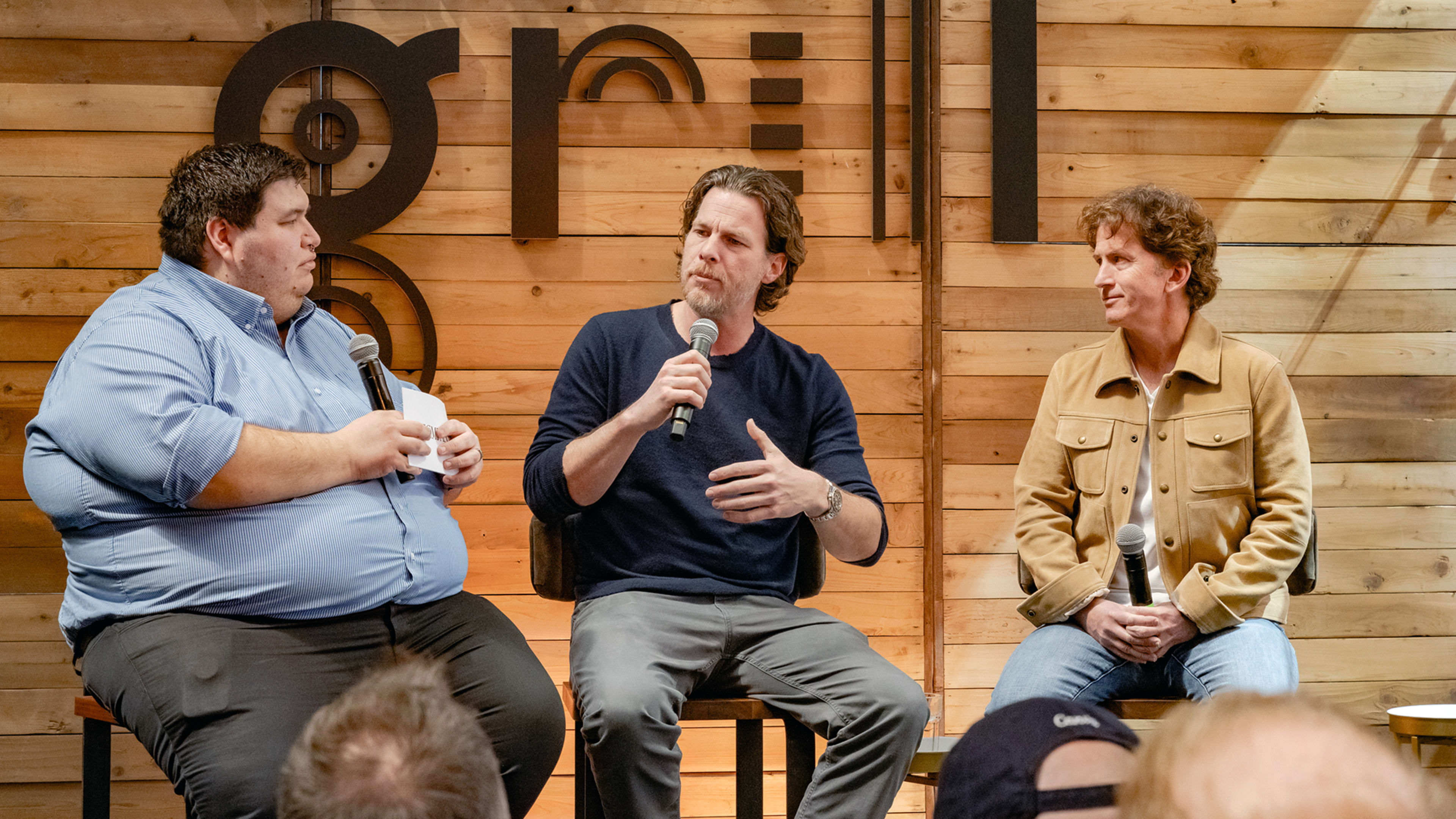The Fast Company Grill hit SXSW this weekend. Couldn’t make it to Austin? Here are some Fast Bites: Your handy recap of panel discussions.
When Jonathan Nolan first played Fallout 3, he was hooked.
The biggest draw was the way the game dropped the player into a fully-formed universe of its post-apocalyptic nuclear wasteland and let the player navigate the danger, excitement, and moral ambiguity of that world.
Nolan’s wonder is shared by millions of players who have played the 6 iterations of Fallout since it first debuted in 1997. But unlike millions of other players, Nolan has been working to bring that universe to streaming audiences with an adaption for Prime Video.
Working closely with Todd Howard, head of the Fallout studio Bethesda, Nolan has brought the game’s ethos to a completely original story told in the game’s universe. At the Fast Company Grill at SXSW, he and Howard discussed the ins and outs of preserving what fans have grown to love about the games while telling a new story, as well as why video games are finally coming into the broader cultural conversation.
You can’t create by committee
“I don’t think you can worry about pleasing this group or that group. That’s a losing game. I just worry about pleasing myself,” Nolan said. “I just want to make the show that I want to watch. If you come at it and approach the material with love and respect, you’re just guided by your own instincts about these things. You’re not sitting there worried about what are these folks going to make of it? At the scale we’re making this show, you have to be somewhat responsible. But I don’t really know any other way to do it. I know a lot of people who spend a lot of time worrying about what certain people are going to think of things, and it fails for that reason. It feels like it’s made by committee.”
Designing down to the last detail
“I’ve never made a TV show or a movie or anything like that, and I was expecting a little bit more fakery,” Howard said. “I was completely blown away by the level of detail, the obsession with getting every particular thing.”
For example, as Howard mentioned, building out the office for the character the Overseer. “I sat down at the desk and there were props, but there was also a stack of papers and there was a letter to the Overseer,” Howard said. “I’m like, clearly these are fake. Nope. These are the reports for the vault, like the power distribution, what the food supplies are. And I’m like, you crazy motherfuckers.”
Translating gameplay to TV
“With adaptation, you’re often adding things,” Nolan said. “With a novel, you’re adding actors and images. With the video game, you’re taking things away. You’re taking away the audience’s ability to explore the environment. You’re taking away the moral ambiguity. You’re taking away the ability to walk around and pick things up, and it’s such an inherent part of the game. So from the beginning, we said, well, there’s one thing that we can add, which is reality. We knew we were going to pick up the crew, drag them down in Namibia and shoot on the Skeleton Coast, drag them out to Utah, shoot in the desert, because reality is the one thing that we can offer that we can add to the games.”
Recognize your brand’s excellence by applying to this year’s Brands That Matter Awards before the early-rate deadline, May 3.
